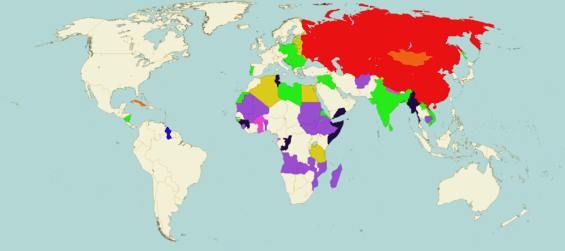
Why representative democracies are called liberal democracies?
Want to know ? actual reason of why are representative called liberal democracies.
Liberal Democracies This is first a historical reason. Most Western states became liberal before they became democratic. That is so say they achieved a liberal constitutional order before they granted universal suffrage or developed mass political parties.
The most important features of such an order were; the subordination of government or executive to the laws approved by an elected parliament (the rule of law): guaranteed rights of the individuals to due legal process and to the freedoms of speech, assembly and movement; a judiciary with sufficient independence of both parliament and executive to act as guardians of the law and these individuals rights. Historically, the democracies in which the suffrage was extend and mass political parties developed without the prior consolidation of this liberal constitutional feature proved very insecure.
The Rule of Law
This brings us to a second practical reason why liberal constitutionalism and democracy belong together. A government in a modern state has enormous powers at its disposal. Whatever its popularity, if it is not kept subject to the law like everyone else, or if it is not required to seek approval for legislation from parliament according to established procedures, or if it does not respect the liberties of its citizens, however unpopular on occasion their exercise may be, then people will rapidly lose the capacity to control it.
Democracy is not a system that gives the people whatever they demand at a given moment, or in the shortest possible time but on that secures the conditions for their influence and control over their governments on an ongoing basis.
And among these conditions proved to be the basic elements of liberal constitutionalism already outlined: the rule of law, the separation of powers between executive, legislature and judiciary, and the guaranteed of individual’s rights and liberties.
Constitutionalism and Democracy
As the term constitutionalism’ implies, these features together with all the other component elements of democracy, are best protected in a written constitution, in which the rights and duties of citizens, and of the different organs of state, are explicitly defined and publicly known.
The special position of the constitution is recognized when public officials are required to swear loyalty to it above party or sectional interest, and by the fact that is requires special measures, such as qualified majorities or referenda, to alter it.
Yet in practice a written constitution is only authority and determination to enforce it and that the public at large is vigilant in its defense.
